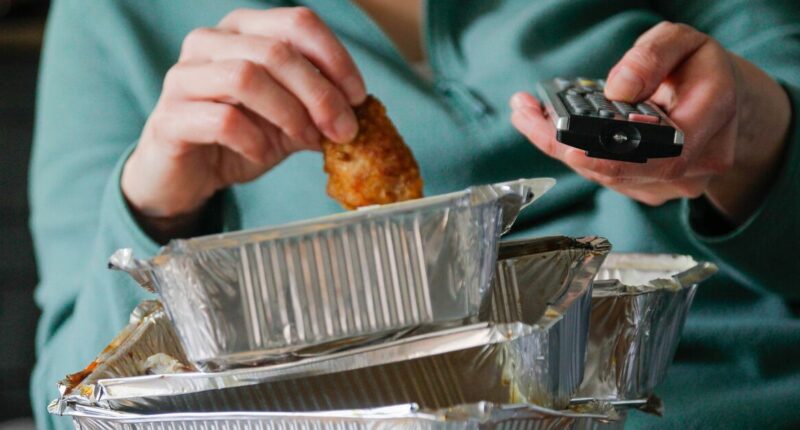Share this @internewscast.com
Scientists have discovered a connection between consuming substantial quantities of ultra-processed foods (UPFs) and lung cancer. An international research team monitored the health and dietary patterns of more than 100,000 American adults, with participants averaging 63 years of age.
Following an average tracking period of 12 years, researchers identified 1,706 lung cancer cases. Food survey questionnaires documented UPF intake, encompassing ice cream, fried foods, bread, cakes, pastries, salty snacks, breakfast cereals, instant noodles and soups, margarine, confectionery, soft drinks, sweetened fruit drinks, hamburgers, hot dogs and pizza.
The research team, spearheaded by Chinese academics, discovered that typical UPF consumption averaged nearly three servings daily, though this varied from 0.5 to six servings. Lunch meat and soft drinks emerged as the most frequently consumed categories.
Individuals with the highest UPF intake demonstrated a 41% greater likelihood of developing lung cancer compared to those with the lowest consumption, according to findings published in the journal Thorax. The heightened risk applied to both non-small cell lung cancer and small cell lung cancer.
The researchers acknowledged making adjustments for smoking status, but noted they hadn’t accounted for smoking intensity, which could influence results. They emphasise that “causality cannot be determined” from their findings and urge cautious interpretation of the data. “Although additional research in other populations and settings is warranted, these findings suggest the healthy benefits of limiting UPF,” the authors stated.
They continued: “Limiting trends of UPF intake globally could contribute to reducing the burden of lung cancer.”
Professor Sam Hare, a consultant chest radiologist at the Royal Free London NHS Trust, weighed in on the study’s implications: “A quarter of lung cancer cases occur in non-smokers so we do need research exploring whether other factors are associated with lung cancer.
“We also know immunity is linked to cancer biology so it is a good idea to do research into factors like diet. However, further work is needed to establish direct causation between UPFs and lung cancer, crucially, whilst the study does make some adjustments for smoking status, the amount of smoking is not factored in, which is known to be directly related to lung cancer development.
“Dietary habits also change considerably over the course of such long-term studies, as such, it is difficult to directly conclude that lung cancer is related to the level of UPF consumption alone given it was only declared at the start of the study.
“That said, given the relative dearth of information on non-smoking related risk factors in lung cancer, it is important that the scientific community conducts more studies like this – we need genuine evidence-based advancement in the early diagnosis of lung cancer in non-smokers, but this study isn’t quite able to give us the answers yet.”
Meanwhile, separate research has analysed teenage smoking patterns across five decades in Britain. Scientists from the University of Michigan examined data covering 16 and 17 year olds across three time periods: 1974, 1986 and 2018.
Their findings revealed a dramatic decline in youth smoking, plummeting from 33% to 12% throughout the research timeframe. The 2018 data showed that 11% of older teenagers were using vaping devices.
The research team suggests that adolescents who vape face heightened risks of becoming cigarette smokers. Publishing in Tobacco Control journal, they noted that smoking probability stood at just 1.5% amongst non-vaping teenagers, whilst soaring to 33% among those who do vape.
“Tobacco control efforts should continue to focus on the prevention of general youth nicotine use and to specifically target youth who use e- cigarettes because their risk of cigarette smoking is similar to youth in the 1970s,” they concluded.
However, academic observers have dismissed this conclusion as “not justified”.











